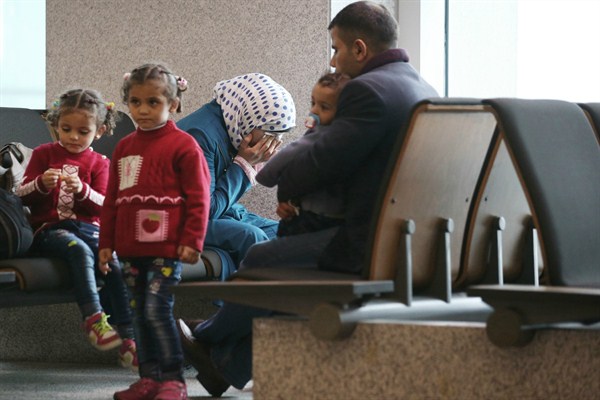Editor’s note: This article is part of an ongoing series on immigration and integration policy around the world.
Hundreds of Yemeni asylum-seekers found their way to the South Korean resort island of Jeju this summer, sparking protests in a country that does not have a long history of dealing with foreigners of different ethnicities. Over 700,000 South Koreans have since signed a petition calling on the government to limit the entry of asylum-seekers, forcing President Moon Jae-in’s administration to scramble in response to the backlash. In an interview with WPR, Darcie Draudt, a doctoral candidate in political science at Johns Hopkins University who specializes in Korean affairs, discusses the history of refugees and asylum-seekers in South Korea and explains why even a liberal government there has difficulty opening its doors to those in need.
World Politics Review: How accommodating are South Korea’s immigration and integration policies toward migrants, especially refugees and asylum-seekers? Do these policies broadly reflect public attitudes?

